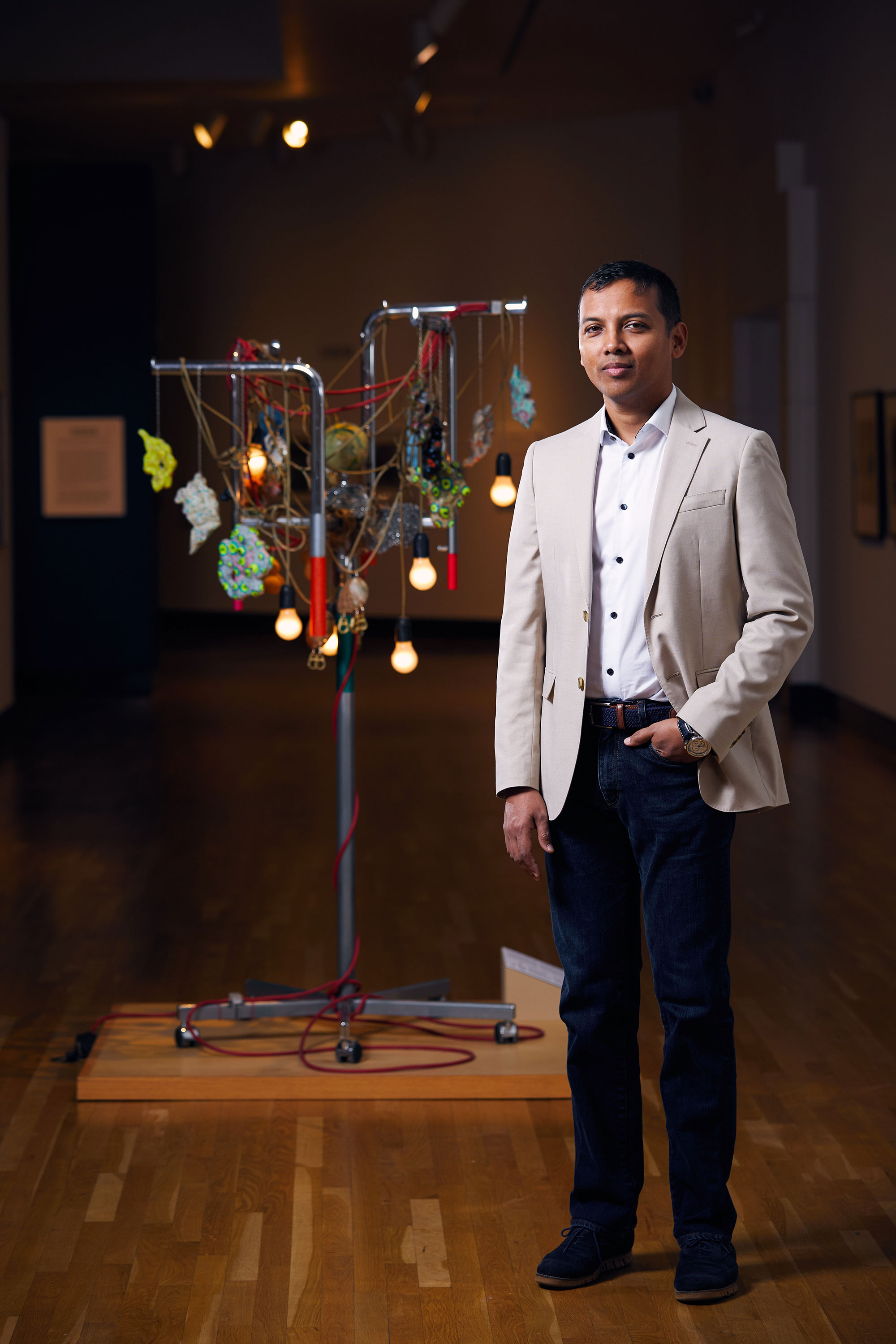
Portrait by Brianne Lehan and Lyon Duong/UF Photography. Artwork: "Ornamental Mountains and Seas—Monster and Cloud" by Haegue Yang, 2011, museum purchase, funds provided by the Caroline Julier and James G. Richardson Acquisition Fund and the David A. Cofrin Fund for Asian Art
Associate professor of mechanical engineering, Herbert Wertheim College of Engineering
Buildings consume almost half of the energy used in the United States. Barooah works on ways to reduce consumption while delivering better results. Next up: Taking his expertise public to help inform policy.
Describe your work:
Sustainability through intelligent energy use
How can buildings be more energy efficient?
Barooah likens the way buildings use energy to driving a car in third gear all the time: It works, but it’s not efficient. He envisions a future where buildings have the equivalent of an automatic transmission. “We need better algorithms to make these systems shift gear automatically, all the time. I think about how to create software that will make these things run in an intelligent manner, autonomously, without human beings trying to figure out what to do next.”
What keeps you motivated?
“We don’t have a backup planet.”
What do you wish people understood?
LEED certifications are a start, but would you buy a car based on its great gas mileage if there was no way to verify it? “That’s kind of the state of energy efficiency standards, specifically for large buildings. Verification is unsexy, but if you really care about efficiency, energy policy needs to be backed up by measurement.” Barooah points to disclosure standards enacted in New York City and Seattle that can help residents choose efficient buildings, which can incentivize smarter energy use.
How do you stay optimistic?
“As a university professor, I deal with young people, and they don’t come with preconceived notions. I usually find that it’s very difficult to change anybody’s opinion as long as that anybody’s an adult. The younger the person is, they actually come with a fresh mindset. Even if they come with an opinion, they’re far more willing to change their opinion when presented with new facts.”
What’s next?
“I’d like to educate policymakers to make sure they’re asking the right questions. As engineers, we can come up with technologies, but unless the policy framework is there to make sure the right technologies are used, then things are not going to change. How do I inform public policy so that they have all the tools to make the right decisions and not get caught up in buzzwords? It’s on us to make sure that happens.”
Read more about Barooah's work in this piece from Explore magazine.
This is part of a series highlighting people at the University of Florida working to protect our well-being and the health of the planet, paired with works from the Harn Museum of Art exhibition “The World to Come: Art in the Age of the Anthropocene.” See the full series.